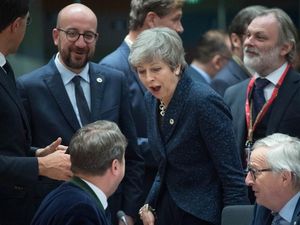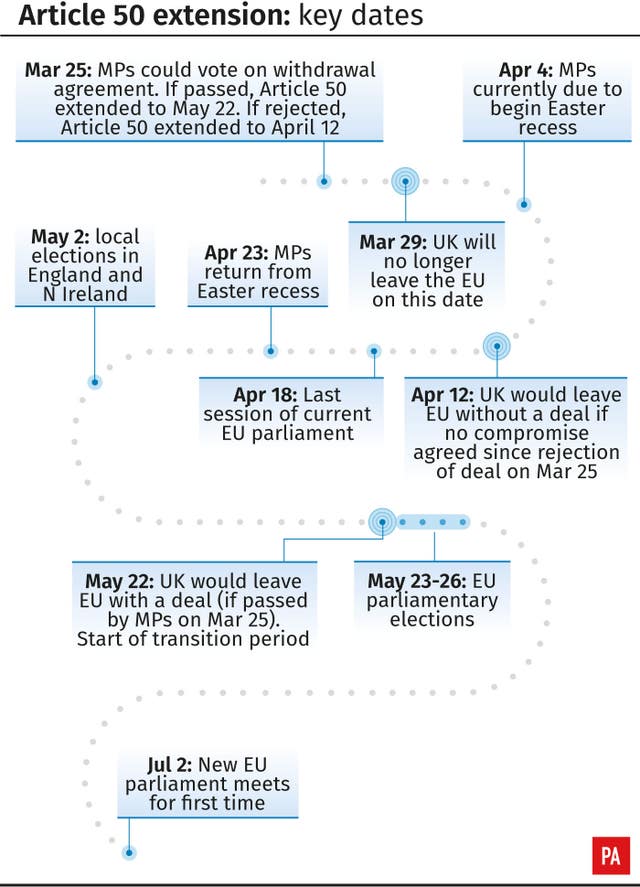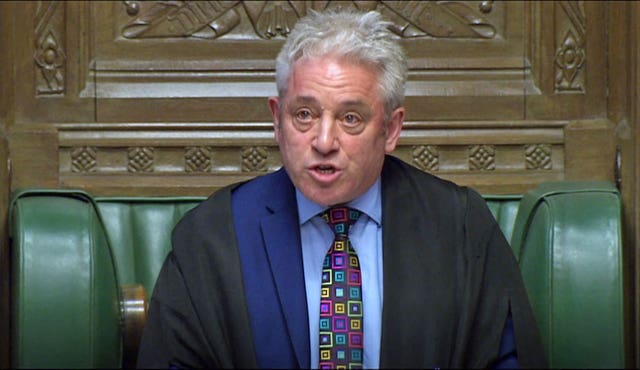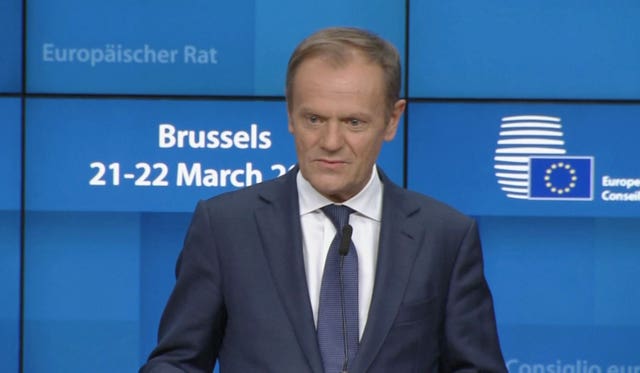Brexit: the past seven days
Another dramatic week failed to end uncertainty about the way ahead.

Another week of Brexit drama in London and Brussels has done little to end the uncertainty over the UK’s withdrawal from the EU. So what has happened and what will happen next?
Days to go
Certainly not 7, as the long-expected March 29 date of Brexit Day is now off the table. It could be 21, if the House of Commons rejects Theresa May’s deal and Britain decides to leave on April 12 without seeking a further extension. Or 61, if MPs back the Withdrawal Agreement and the UK leaves with a deal on May 22. Conceivably, it could be 284, if the EU grants a further extension to the end of the year, or even more if a longer postponement is agreed.

Jean-Claude Juncker may have got it right when he answered the question of how long the UK could stay in: “Until the very end.”
What happened this week?
Theresa May’s plans for a third “meaningful vote” on her Brexit deal were scuppered by Commons Speaker John Bercow, who ruled on Monday that a 17th-century parliamentary convention meant the Government could not repeatedly bring back the same motion.

A fiery Cabinet saw Leave and Remain-backing ministers clash over whether the Prime Minister should seek a long or short delay to Brexit and ended without settling the matter. Mrs May began Wednesday with an early-hours decision to go for June 30 as the new departure day, and ended it with a much-criticised TV address from Downing Street in which she blamed MPs for failing to make their minds up and told frustrated voters: “I’m on your side.”
On Thursday in Brussels, the other 27 EU leaders brushed aside Mrs May’s plans and took back control, deciding a new Brexit timetable while she waited outside the room.
What happens next?
Having lost its second “meaningful vote” (MV2) by a margin of 149 last week, the Government has to table an amendable motion on Monday which will allow MPs to force debates and votes on their own preferred outcomes. A cross-party group headed by Sir Oliver Letwin will seek to seize control of the parliamentary timetable on Wednesday to force legally binding votes on the way forward. Mrs May is expected to put her Brexit package to a third meaningful vote (MV3) on Tuesday or Wednesday, with the prize of an orderly exit on May 22 if MPs approve it. If they again reject it, the scene will be set for a series of indicative votes to establish if there is a plan the Commons can unite behind.
Good week
Emmanuel Macron

The French president was the driving force behind the EU27’s rejection of Theresa May’s timetable for a delayed Brexit. The package drawn up in Brussels takes the timing of departure out of the UK’s hands and delivers a two-week breathing space for Britain to think again before driving off the cliff-edge of a no-deal withdrawal. And – most satisfactorily for the EU leaders themselves, who were not relishing the prospect of a rapid return to Brussels – it avoids the need for an emergency summit next week if Mrs May’s plan falls.
Bad week
The hardline Brexiteers
Leave-backing Conservatives were left howling about “national humiliation” as they saw their long-cherished dream of a no-strings-attached “clean Brexit” on March 29 vanish before their eyes. They are now torn between backing an agreement which they have long derided as “Brexit in name only” or taking the risk of a lengthy delay – or even death-blow – to Brexit itself.
Quote of the week
“According to our Pope, Hell is still empty. It means there is a lot of space.” – European Council President Donald Tusk, when asked if there will be a place in Hell for MPs who vote against Mrs May’s deal next week.

Tweet of the week
“Following the news that Hastings Pier will remain closed past March, I update residents in my open letter below”.
This apparently innocuous constituency message from Remain-backing Cabinet minister Amber Rudd had half of Westminster scratching its collective head. Was it a cryptic comment about delaying Brexit beyond the end of March? Was the long-standing structure stretching out from Britain’s shores towards continental Europe a metaphor for something? Or was it just a local gripe about an attraction’s doors being closed as the tourist season approaches? Few of those exchanging quips about it on Twitter really wanted to know the answer.
Word of the week
Flextension
This hurriedly-invented phrase describes the multiple-option delay to the Article 50 process offered by the EU27, which could be short or could be long or could even go on for ever.





